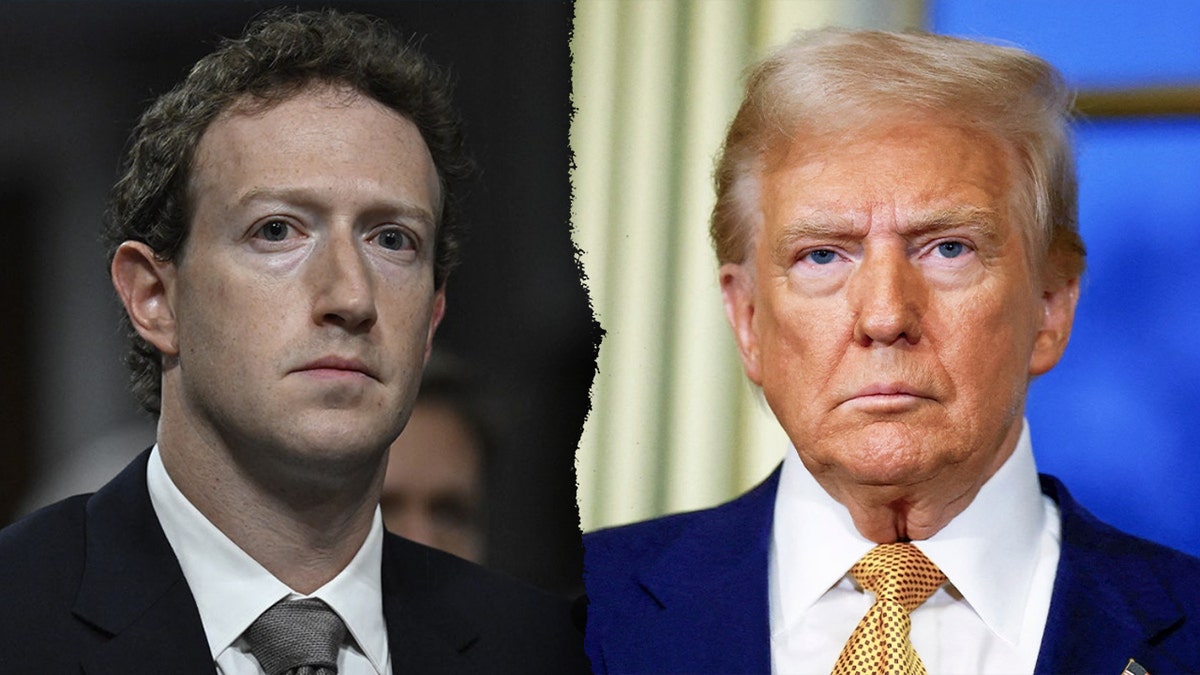The Zuckerberg-Trump Dynamic: Implications For Technology And Politics

Table of Contents
H2: Facebook's Role in the Trump Presidency
Facebook, under Zuckerberg's leadership, became a central battleground during the Trump presidency. Its role extended far beyond a simple communication platform, shaping political narratives and influencing electoral outcomes.
H3: Trump's Use of Facebook for Campaigning and Communication:
Donald Trump masterfully leveraged Facebook for his campaigns. His strategy relied heavily on:
- Direct engagement: bypassing traditional media gatekeepers to connect directly with voters.
- Targeted advertising: precisely reaching specific demographic groups with tailored messaging.
- Emotional appeals: using emotionally charged language and imagery to resonate with his base.
- Rapid dissemination of information: quickly spreading news and counter-narratives, often before traditional media could react.
His use of Facebook rallies, live streams, and targeted ads demonstrably influenced voter engagement and shaped public opinion.
H3: Facebook's Algorithmic Influence on Political Discourse:
Facebook's algorithms, designed to maximize user engagement, inadvertently amplified divisive rhetoric and the spread of misinformation. This created:
- Filter bubbles: reinforcing pre-existing beliefs and limiting exposure to diverse perspectives.
- Echo chambers: creating online spaces where like-minded individuals reinforce each other's biases.
- Algorithmic bias: potentially favoring certain types of content, including misinformation, over others.
This algorithmic influence contributed significantly to the polarized political climate during the Trump era.
H3: The Cambridge Analytica Scandal and its Consequences:
The Cambridge Analytica scandal, involving the harvesting of user data for political advertising purposes, severely damaged Facebook's reputation and raised serious concerns about data privacy and political manipulation. This scandal resulted in:
- Increased regulatory scrutiny: leading to investigations and calls for stricter regulations on data usage.
- Erosion of public trust: diminishing faith in Facebook's ability to protect user data and prevent misinformation.
- Changes in advertising practices: forcing Facebook to implement stricter policies on political advertising and data usage.
H2: The Zuckerberg-Trump Relationship and its Tensions
While rarely directly confrontational, the relationship between Zuckerberg and Trump was characterized by significant policy differences and underlying tensions.
H3: Public Statements and Interactions:
Though infrequent, their public interactions often revealed contrasting viewpoints. Zuckerberg emphasized Facebook's commitment to free speech, while Trump frequently criticized the platform for alleged bias against conservatives and his own perceived censorship.
H3: Policy Differences and Conflicts:
Significant policy disagreements arose regarding:
- Content moderation: Facebook's policies on removing false or misleading information clashed with Trump's emphasis on free speech, even when that speech was harmful or inaccurate.
- Data privacy: Trump's administration's approach to data privacy differed from Facebook's evolving policies, leading to tensions and debates over regulatory oversight.
- Section 230: The debate surrounding Section 230 of the Communications Decency Act, which shields social media companies from liability for user-generated content, saw differing positions from both Zuckerberg and Trump, highlighting the complexities of online content moderation and legal responsibility.
H3: Impact on Free Speech vs. Misinformation Debate:
The Zuckerberg-Trump dynamic significantly fueled the debate surrounding free speech versus the spread of misinformation on social media. Facebook's responses to pressure, including the implementation of fact-checking initiatives and content removal policies, exemplified the ongoing struggle to balance these competing values.
H2: Long-Term Implications for Technology and Politics
The Zuckerberg-Trump dynamic has had lasting consequences for technology and politics, shaping the future of both fields.
H3: The Future of Social Media Regulation:
The experience has undoubtedly spurred calls for increased regulation of social media platforms, including:
- Increased transparency: demands for greater transparency in algorithms and advertising practices.
- Enhanced content moderation: stricter rules concerning misinformation, hate speech, and election interference.
- International cooperation: greater collaboration between nations to address the global challenges posed by social media.
H3: The Impact on Political Campaigns and Elections:
The reliance on social media in political campaigns has been irrevocably altered, leading to:
- Increased sophistication in targeting: more precise micro-targeting of voters based on data analysis.
- Heightened scrutiny of online campaigning: increased focus on identifying and combating misinformation and foreign interference.
- New vulnerabilities: greater awareness of the potential for manipulation and exploitation of social media platforms.
H3: The Shifting Power Dynamics Between Tech and Government:
The relationship has redefined the power dynamics between technology giants and government institutions, characterized by:
- Increased governmental scrutiny: greater oversight and regulation of tech companies.
- Growing demands for accountability: increased pressure on tech platforms to address societal harms.
- Evolving regulatory frameworks: ongoing development of laws and regulations to manage the impact of technology on society.
3. Conclusion:
The Zuckerberg-Trump dynamic represents a pivotal moment in the interplay between technology and politics. It revealed the profound impact of social media on political discourse, the challenges of regulating online content, and the evolving power dynamics between tech companies and governments. Key takeaways highlight the need for greater transparency, more effective content moderation, and stronger regulatory frameworks. Understanding the nuances of this "Zuckerberg-Trump dynamic" is critical to navigating the future of online political communication and responsible technology governance. We must continue exploring the evolving relationship between technological giants and political power, ensuring a future where social media serves democracy, not undermines it. Further research into the impact of algorithms on political polarization and the effectiveness of different regulatory approaches to social media remains crucial.

Featured Posts
-
 Gaza Kidnapping The Case Of Edan Alexander
May 13, 2025
Gaza Kidnapping The Case Of Edan Alexander
May 13, 2025 -
 A Critical Analysis Of The Da Vinci Codes Impact On Popular Culture
May 13, 2025
A Critical Analysis Of The Da Vinci Codes Impact On Popular Culture
May 13, 2025 -
 The Impact Of Reduced U S China Tariffs On The American Economy
May 13, 2025
The Impact Of Reduced U S China Tariffs On The American Economy
May 13, 2025 -
 A Fathers Strength A Message From Hostage To Son
May 13, 2025
A Fathers Strength A Message From Hostage To Son
May 13, 2025 -
 Pivotal Character Killed In Elsbeth Season 2 Episode 18
May 13, 2025
Pivotal Character Killed In Elsbeth Season 2 Episode 18
May 13, 2025
